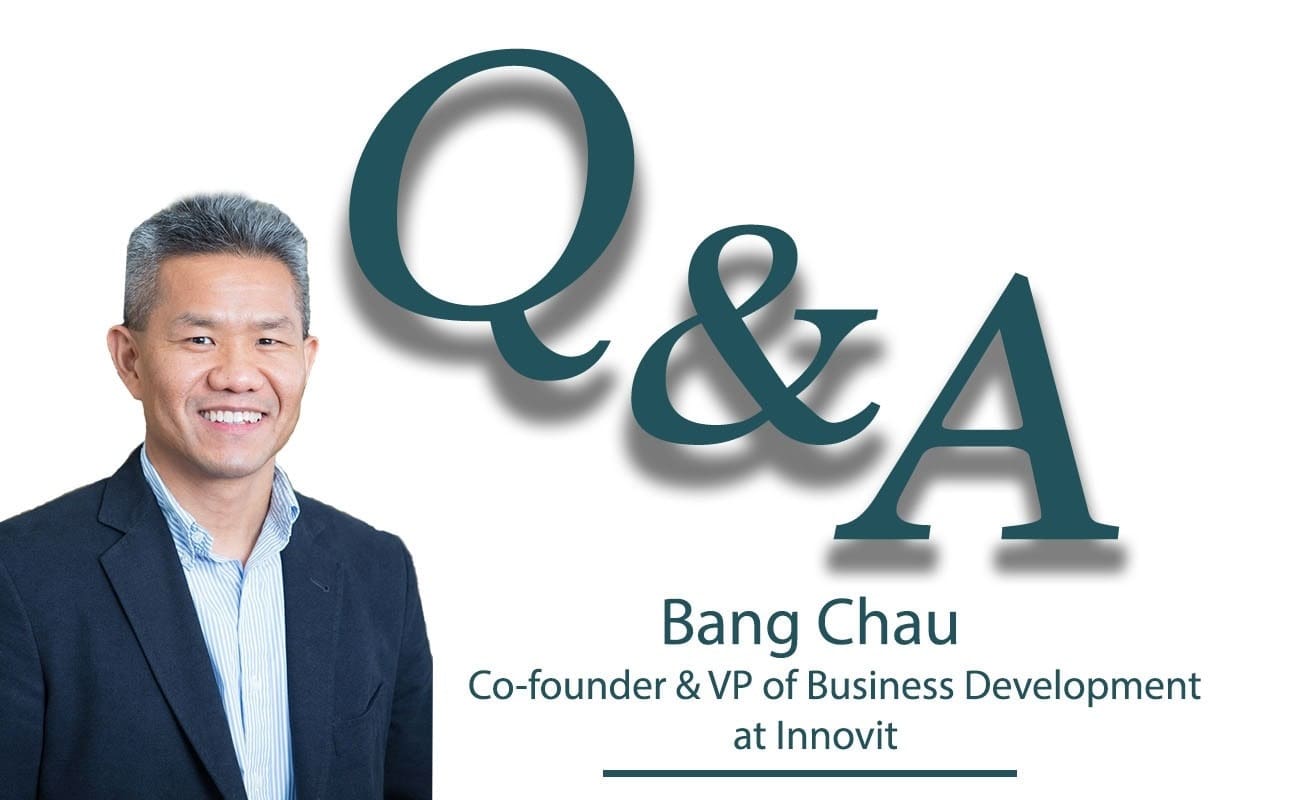Q&A with Bang Chau, Co-Founder and VP of Business Development, Innovit
We’re pleased to feature today an interview between CCI’s Maurice Gilbert and the co-founder and VP of Business Development at Innovit, Bang Chau. Read on to hear his insights on the compliance landscape and his view on some of the greatest risks and compliance challenges facing businesses today.
Maurice Gilbert: How did you get started on a career in compliance?
Bang Chau: I got my start in compliance by working in B2B cataloging and data synchronization for large pharma and medical device customers. From there, I was asked to submit product master data to the FDA and quickly realized that compliance was a big issue that needed to be addressed in the complex regulatory environments I was working in. From there, I began to educate myself in learning more about regulations related to GAMP5 validation, the V-model and 21 CFR Part 11.
MG: Who helped shape your views?
BC: By working with global customers such as J&J, B. Braun, 3M, Astra Zeneca and Novartis Sandoz to meet their regulatory needs and hospital mandates, I was able to better understand the importance of compliance to help improve patient safety.
MG: How do you stay current on ethics and compliance issues?
BC: I try to stay as current as possible on ethics and compliance issues from a number of different factors including active memberships in various industries, professional organizations and regulatory workgroups and staying on top of publications from government agencies and industry groups (like FDA, EUC, MedTech, NHS and the Department of Health).
MG: What are some of the significant issues facing CCOs, Risk Managers, etc.?
BC: From a health care manufacturer’s perspective, the ever-increasing government regulation around product identification, track and trace, pre-market registration and post-market surveillance adds a huge product data management and governance burden and cost. It’s increasingly difficult to keep up with the skills and knowledge required to comply with each jurisdiction’s unique requirements for high-quality data throughout a product’s lifecycle. At the same time, manufacturers are expected to deliver product at lower cost to help health care providers deliver higher levels of patient safety whilst lowering health care supply chain costs.
MG: What do you believe is the optimal reporting structure for the CCO and why?
BC: In my experience, I found that embedded compliance works best from a reporting structure standpoint. The best reporting structure is usually comprised of implementing systems that automate the process of gathering, reviewing, approving and publishing critical product data for regulatory submission (i.e., systemize product data management and governance processes). Also, removing dependence on spreadsheet databases and multiple siloes of product master data is helpful in reporting to the CCO.
MG: How do you effect change within your client’s environment?
BC: In order to effect change within our clients’ environments, we recommend securing executive trust for top-down buy-in in order to initiate corporate policy change while garnering bottom-up support in terms of policy execution and technology/process implementation.
MG: How do you see the CCO role evolving within the next three years?
BC: In the next three years, the role of the CCO will become more strategic. The ability for a CCO to provide vision and leadership while stepping away from less operational and micromanaging will be key factors for success in the CCO role.
MG: What do you see as the greatest business risks facing companies today?
BC: Some of the biggest risks facing companies today involve cybersecurity and increased liability through inaccurate product disclosures which, if not handled correctly, can greatly damage the company’s reputation. Having a lack of discipline and capability to ensure the quality of master data and content published to regulatory agencies and the markets around the world can also affect the company’s bottom line. In addition, the failure to develop a culture of compliance – especially throughout the supply chain – can have negative effects on the company.
MG: What do you see as the greatest regulatory risks facing companies today?
BC: Some of the biggest regulatory risks facing companies today involve the divergence in regulatory standards around the world and government sanctions for lack of compliance, product liability and consumer legal action.
MG: How might Chief Compliance Officers, Chief Audit Officers and Chief Risk Officers prepare to face these risks?
BC: One way to better prepare for facing these risks involves having a better comprehensive view of compliance scans and audits of the organization, especially in the production locations. Another way would be to conduct regular gap analysis, implement remedial steps and focus on risk mitigation measures like proper MDM systems.
MG: How does your company help its clients mitigate risk?
BC: We help our clients mitigate risk by taking preventative measures such as systems to automate data collection, data management and validation processes. Having auditable proof of compliance execution via technology solutions is helpful in making sure our clients are compliant.
MG: What new service offerings do you have in the queue?
BC: Innovit currently has the following services in the queue for our customers:
- The addition of advisory services to help customers implement best practice measures,
- A validated system pre-configured for UDI and GDSN compliance and
- Private cloud offerings to lower the cost of implementing and maintaining compliance capabilities – both systems and compliance content.
MG: Compliance departments are often asked to accomplish their work with limited resources… do you see this situation changing any time soon?
BC: In my opinion, cloud-based technology is the way forward. The ability to improve employee productivity by expediting collaboration, knowledge sharing and communications between teams distributed around the world who have local jurisdictional knowledge will be key – in addition to facilitating the changes in key roles and allocation of responsibilities.
 Bang Chau is co-founder of and VP of Business Development at Innovit, a global master data management (MDM) solution provider. He co-founded Innovit as a postgraduate student in Computer Science at UNSW. Bang is also a CPA, having started his career as a management accountant in 1990. Prior to serving at Innovit, Bang held various roles as IT Consultant and IT Director for multinational companies like Orica, CSR, Boral and JD Edwards.
Bang Chau is co-founder of and VP of Business Development at Innovit, a global master data management (MDM) solution provider. He co-founded Innovit as a postgraduate student in Computer Science at UNSW. Bang is also a CPA, having started his career as a management accountant in 1990. Prior to serving at Innovit, Bang held various roles as IT Consultant and IT Director for multinational companies like Orica, CSR, Boral and JD Edwards.











